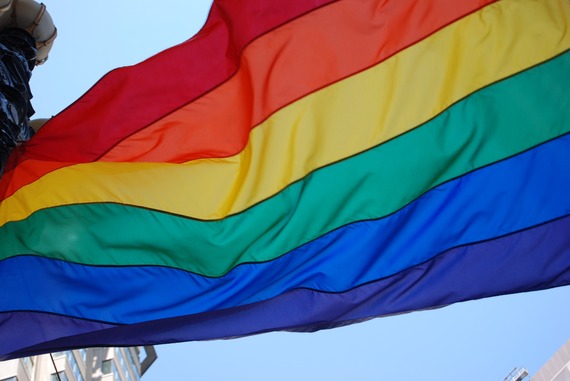Image: Rainbow Flag. Stock Photo. Pixabay.com
Finding a job in a country as poor as Armenia can be daunting under the best of circumstances.
It's even more difficult if you're gay.
That's because most employers hold the same anti-gay attitudes as society in general, and there are no laws to protect gays from discrimination.
Job discrimination is just one obstacle that gays in Armenia and other former Soviet countries face, however.
They must endure the scorn of family, friends and society, and condemnation from government and church leaders. Anti-gay legislation that some countries have enacted -- and that others have tried to enact -- has increased the vitriol.
But the worst nightmare for gays in the region is the possibility of physical attack, including beatings, torture and death. The violence is widespread, and increasing, according to gay-rights advocates.
Given the many news stories about attacks on Russian gays, and the country's recent enactment of anti-gay legislation, many people would be surprised to learn that pre-Soviet Russia was more tolerant toward gays than Western Europe.
That changed when Soviet dictator Josef Stalin made homosexuality a crime.
Although most former Soviet countries eliminated the law after they became independent in 1991, the long-term damage -- in terms of hardened attitudes toward gays -- had been done.
Vladimir Putin, who began his career as a Soviet functionary, has obviously embraced the notion that homosexuality means deviance, perhaps a crime, certainly a sin. He has played a key role in fostering today's homophobic attitude in the region by speaking out against homosexuality and championing Russia's 2013 anti-gay-propaganda legislation. That law outlaws the dissemination of information about non-traditional sex.
Russia is the trend-setter across the former Soviet Union, so it wasn't surprising when officials in other countries decried homosexuality and their parliaments tried to push through copies of Moscow's anti-gay-propaganda legislation.
Although mistreatment of gays is common in the region, most people shrug it off, either condoning it or not caring.
Every so often the issue surfaces in such a dramatic way that the public can't ignore it, however.
In Armenia's capital of Yerevan, a club frequented by gays was firebombed in 2012.
Politicians from the ruling Republican Party of Armenia and opposition parties sent a message about what they considered the deviant nature of gays by defending the brothers arrested for the crime.
"I am sure these young men acted in accordance with our public and national ideology, and that they acted correctly," said Artsvik Minasyan, a member of parliament from the Dashnaktsutyun Party.
In Ukraine, masked, homophobic thugs surrounded a hotel in Lviv where a gay festival was about to take place in March of this year and shouted, "Kill, kill, kill!"
Worried about their safety, organizers canceled the event and scurried from the city.
Many Ukrainian gays took part in the Euromaidan protests in Kiev in 2014 that ousted pro-Russian President Viktor Yanukovych, who had tried to curry favor with Putin by championing anti-gay legislation in Ukraine.
The gays, like others at the demonstrations, took part at great risk, because police ended up killing more than 100 protesters.
Gays had joined in the uprising in hopes that a new, pro-European Union Ukrainian government would afford them the protections that gays in the EU enjoy. That didn't happen.
In fact, anti-gay sentiment remains as strong as ever in Ukraine.
In Russia, three men were arrested in Volgograd in 2013 for the brutal murder of a friend who admitted while drinking with them that he was gay.
Police found the victim's naked body in a city square.
His attackers had sexually abused him with beer bottles, and crushed his skull.
A measure of the hate that gays engender in some Russians was the fact that the victim and his attackers had been friends not just for a short time, but for years.
Another high-profile gay-bashing story in Armenia was a young man's decision this year to discuss on television how difficult it is to be openly gay in the country.
Edgar Nahapetyan's main motivation for appearing on the talk show was the hope that it would help him get a job. Every employer he had contacted had rejected his application after learning he was gay -- a situation that's common in the former Soviet Union.
Not only did his television appearance fail to help him land a job, but other guests on the show subjected him to horrific gay-bashing, and gay haters attacked him on social media.
The gay-rights group PINK finally helped him find a janitor's job.
But Nahapetyan is still shaken by the vicious reaction to his going on television.
Meanwhile, human-rights defenders saw the episode as just one more piece of evidence that the journey to gay rights in the former Soviet Union will be long and harrowing.
Armine Sahakyan is a human rights activist based in Armenia. A columnist with the Kyiv Post and a blogger with The Huffington Post, she writes on human rights and democracy in Russia and the former Soviet Union. Follow her on Twitter at: www.twitter.com/ArmineSahakyann

